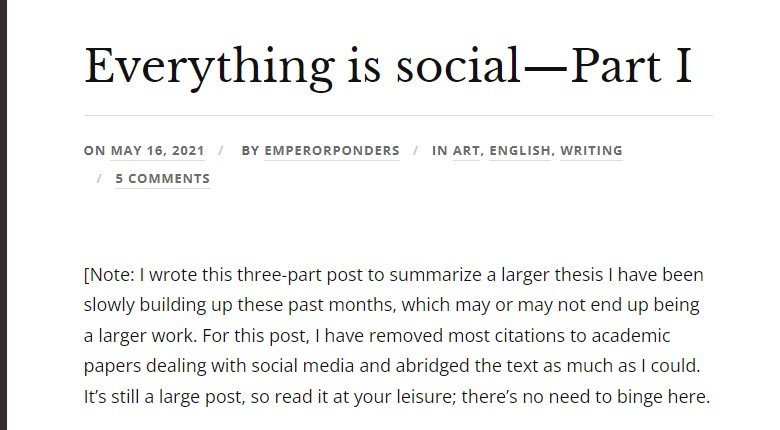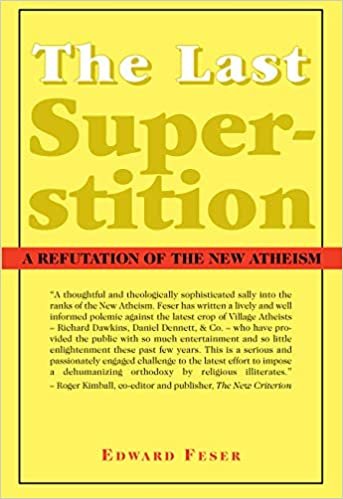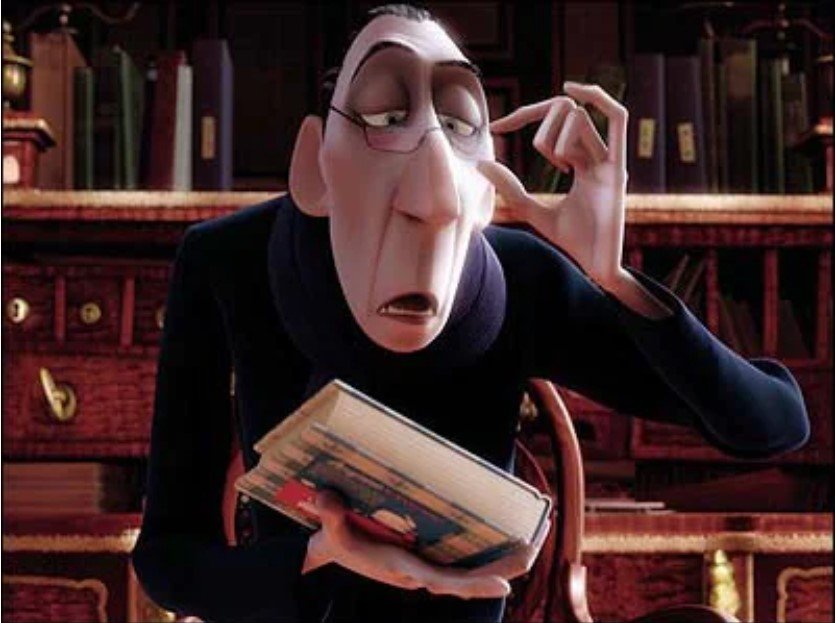Writers, Readers, and Critics

I recently recorded a podcast about book reviewing, and this got me thinking about what it is that I do here at With Both Hands. I had to come up with answers on the fly for the podcast, but the advantage of a blog is that I can take my time and formulate a raison d'être for my book reviews.

Steve Sailer’s review of Susan Rogers’ book on popular music What It Sounds Like provides a three-part typology of music audiences that I am going to steal and repurpose:
Rogers distinguishes between three audiences for musicians: critics who can provide fame, other musicians who can offer respect, and the public who deliver love (and money).
Here is my take on how these three categories could apply to book reviewing:
- Critics assess whether an author has done a difficult job well, or contributed to the Great Conversation in a lasting way. Rogers calls this fame.
- Other writers assess an author’s craft as a writer, peer-to-peer. Rogers calls this respect.
- The public buys books and writes an author fan mail. Rogers calls this love.
This is a pretty solid division of the audiences for music, and I think it pretty readily translates to movies as well. You can make an argument that something similar applies to books. Or at least it did apply to books. Rogers did all of her work on the other side of the invention of social media, which has irrevocably changed all of this. The relationship between creators and their audiences isn’t the same after social media took over the Internet.
Things called “book reviews” now span these three audiences, and each one is trying to do different things. Social media obscures these distinctions, but cannot truly eliminate them.

The essential reading on this subject is the three part series, Everything is Social [I, II, III] by Emperor Norton. There is a lot to unpack in the Emperor’s series of posts, and it is worth a read in its entirety, but for now I’m going to pull out one specific element that I will use to modify what Rogers said about music and apply it to what I do with books.
The effect that I want to focus on here is how social media collapses the previous distinction between creators and their audience. Now, every social media user is a micro-creator in an environment driven by algorithmic feedback methods, and that has odd results:
But people are also confused because they still harbor pre-social-media misconceptions about there being some kind of online meritocracy and that effort and reward should correlate like they do, in theory, in many real-life creative enterprises. Social Media does not work on the labor theory of value, and like those people who are famous because they are famous, so does a lot of digital content. Second, social media is not a source of analysis or news (it can be used as such, but it’s not a very good platform for that unless you take a lot of effort curating what you follow, and not even then) but validation and aspirational self-branding. What that means is that one needs to ignore one’s naive tendency to assume that other users (or yourself, for that matter) are detached critics who will praise that which is good and informative with no consideration of what that public praise will do to their own social capital or online persona. This is very relevant when that public is made of other aspiring creators, who can easily interpret the attention they give you as the attention equivalent of credit. In other words, SM as a microcelebrity machine and a source of crowdsourced marketing means that praise might not be about objective (literally, of an object separated from you) evaluation but subjective social validation.
In the current system, book reviews simpliciter are a part of the social media feedback system that is modern book marketing. Think of your average Amazon book review. For the most part, a given individual either loves or hates the book, and will express that feeling. If you are lucky, the review might also include some interesting details about the book.
This corresponds roughly to Rogers’ third audience, the book buying public. This sort of thing is an analogue for what word-of-mouth used to do, but now it is accessible and countable to everyone everywhere all the time [legible, in the sense of James C. Scott]. This sort of thing is the raw material the algorithms use to rank books and present them to the public. Individually, each review means little, but in the aggregate reviews make or break books and authors.

I’ve written book reviews and published them on Amazon and Goodreads, but over time I’ve moved away from these platforms because this isn’t really what I want to do. I want to write something that will make someone think, to consider a book in a new light, or see something important that was obscured. Social media platforms and Amazon’s content algorithm don’t work well for this purpose, and I don’t get as much engagement posting reviews to social media as I do with my blog.
For example, I used to have the top-rated Amazon review of Edward Feser’s The Last Superstition. I had more than a hundred thumbs up and my review was the featured review on the book’s page. Now, I can’t even find the review if I search for it. It seems to have disappeared from Amazon. Which, in a way, I’m grateful for, because I’m done giving my content to the platforms for free.
The second audience for book reviews is writers amongst themselves. This is, or was, about establishing respect with your peers, about being considered a professional, rather than an amateur, a fanfic writer, or a hack. In the pulp days, graduating from the fan magazines to the pros was an impressive accomplishment that was noticed by your peers. This tended to go along with an increase in the size of your sales as well, but was distinct from it.
Today, things work a little different. In the Amazon-enabled indie publishing world, exemplified by the Twitter hashtag #writingcommunity, there is no longer such a clear dividing line between pros and amateurs. A few authors gain A-list status with a major book publisher, still a big reputational boost, but there is a nearly endless social-media enabled pyramid of aspiring writers below them who might actually have a few sales but no name recognition at all.
As Emperor Norton noted, this “community” of writers is endlessly self-referential, driven by engagement and follower counts and all that. It is also not at all clearly distinguished from the book-buying public, because collapsing that distinction is exactly what social media does. It is all just grist for the algorithm, and the value of peer-recognition is fragmented and tainted by social media’s insane feedback loops.
Thus, instead of a relatively well-defined group of writers who know each other and can assess one another’s work in private and public forums, there is an amorphous mass of aspiring writers who try to use all the tricks of social media to sell each other books. There are some pockets of more well-defined efforts, but the nature of social media means that such things are mostly lost in the noise.
Since I’m not an aspiring writer, this level is simply outside of my experience. I see a lot of it in passing on social media, so I do know that things that writers seem to care about in books don’t make much of an impression on me. I have different standards, and I’m not really part of the second audience. I’m not trying to provide respect to my peers, but rather I want to see a work sub species aeternitatis.

In the twentieth century, for music and movies [and food] there were extremely influential critics who were neither musicians nor film directors. For books, however, the biggest tastemakers tended to either be or have been writers of some renown in their own right. For example, the key players involved in the fall [the Bloombury Group] and restoration [the Inklings] of the literary reputation of Robert Louis Stevenson were themselves famous writers.
The first and second audience in Rogers’ sense thus tend to blend together for books, but clearly not every writer, or even every successful writer, has the taste and the reach to be a critic, but this is the pool from which book critics usually arise.
As a book reviewer who aspires to be a critic, I’m a little strange in that I’m not an also a writer myself. I hope that this gives me a different perspective than other critics, as my goal is that here at With Both Hands, you can find reviews and commentary that are not available anywhere else.
I’m not sure that I can truly claim to provide fame to the writers and books that I review. From the affiliate sales I track, I am responsible for fairly modest sales, but I am entirely okay with that. My goal is to use affiliate links to help offset my hosting costs, but as this is a hobby rather than a business, I have no need to make this a financially self-supporting endeavor.
What I do get out of my affiliate sales tracking is the sense of satisfaction that someone else might enjoy a book I think is awesome, and the hope that the author will experience the thrill of additional sales. I probably could turn my reviews into a sales machine, but I suspect it would affect the things that I say. I’ve made a conscious decision to keep my hobby a hobby, a thing that I do out of love.
In the social media environment so aptly skewered by Emperor Norton, I think that pursuing affiliate sales and greater reach would compromise my integrity as a critic, so I’ve made a conscious decision not to pursue that either. I want my reviews to be read, but not on those terms. Thus, I plan to keep doing what I’m doing.

EVERYTHING THAT FOLLOWS IS A RESULT OF WHAT YOU SEE HERE
Everything that follows is a result of what you see here. And what you see here is one man’s quest to restore fame and respect to the kind of books that people like to read.



Comments ()